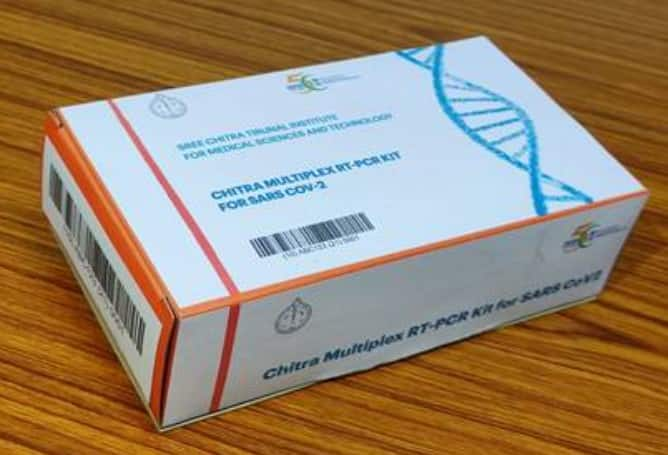New RT-PCR kit detects SARS-CoV-2 mutations easily, here's how it will boost India's fight against COVID-19
The new multiplex RT-PCR kit targets two SARS-CoV-2 genes: RdRp and ORFb-nsp14.
- The new kit is based on multiplex Taqman chemistry, amplifying all three genes in a single reaction.
- The amplification time for the assay is 45 minutes, apart from the time required for the RNA isolation from nasopharyngeal swab samples.
Trending Photos
) Representational Image (Credits: WHO)
Representational Image (Credits: WHO) New Delhi: Amid the second wave of coronavirus in India, the Centre has come up with a new RT-PCR kit to strengthen the country's fight against COVID-19.
The new multiplex RT-PCR kit will help in detecting SARS-CoV-2 mutations and is developed by Sree Chitra Tirunal Institute for Medical Sciences and Technology (SCTIMST), an Institute of National Importance (INI) under the Department of Science and Technology (Government of India).
"This unique RT-PCR kit will be a significant weapon in our fight against COVID-19 by a facile detection of SARS-CoV-2 mutations which are becoming increasingly important," said Secretary, DST, Ashutosh Sharma.
According to the Union Ministry of Science & Technology, the kit targets two SARS-CoV-2 genes: RdRp and ORFb-nsp14, and the human RNAse P gene as the internal control to help detect a range of mutant strains.
"Various studies have shown that RdRp and ORF1b-nsp14 genes are more sensitive in detecting COVID-19. In order to target the multiple variants in the second wave, using two highly accurate confirmatory genes like RdRp and ORF-nsp14, can give precise results," the Union Ministry of Science & Technology stated.

It added that the ORFb-nsp14 is one of the least mutated genes in COVID-19 and currently, there are no kits in the market with ORF-nsp14 as the target.
The new kit is based on multiplex Taqman chemistry, amplifying all three genes in a single reaction. The amplification time for the assay is 45 minutes, apart from the time required for the RNA isolation from nasopharyngeal swab samples. Multiplexing two confirmatory genes will help shortlist possible new coronavirus variants if one of the genes fails to amplify and can be marked for sequence analysis.
The Indian Council of Medical Research (ICMR) has also validated this kit at the National Institute of Virology, Pune, and found that it has 97.3% sensitivity and 100% specificity in COVID-19 detection.
The SCTIMST has signed a non-exclusive license MoU with Huwel Lifesciences, Hyderabad, on May 14 2021 to commercialize the kit.
Stay informed on all the latest news, real-time breaking news updates, and follow all the important headlines in india news and world News on Zee News.
Live Tv







)
)
)
)
)
)
)
)
)
)
